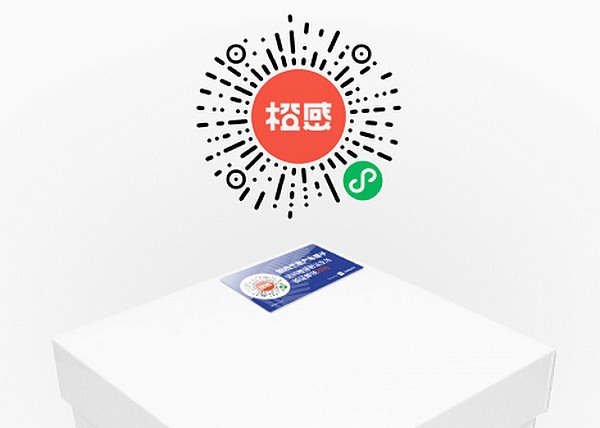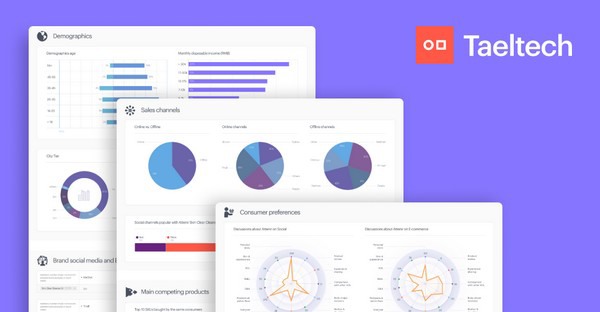One of China's leading consumer engagement platforms is looking at expanding its involvement in the Australian and New Zealand fresh produce industries, not only by assisting sales but also by providing targeted market insights.
Taeltech CEO, Alex Busarov explains that demand for high-quality fruit and vegetables is huge as the China disposable income rises across the country, meaning there is competition for the same share of the wallet - but just being just an "Aussie" or Kiwi" is no longer enough to win the hearts and minds. The company aims to facilitate trade through direct engagement between fresh produce brands and consumers, and utilising technology and experience in place.
"As a citizen of Shanghai, the most affluent city in China, I can say we trust and love Australian fresh fruits and veggies," Mr Busarov said. "However, we also trust NZ, US, European, and local brands. You need to differentiate and we are here to offer the most agile market research, using our Marketplace as the experimental platform to test new products, packaging, engage real consumers in interviews, product tasting etc. Once data is collected and organised, we apply AI and ML for rapid data analysis and human interpretation by our native data engineer. They are also consumers and could provide non-bias and no-bull feedback. Over the last few years, horticulture businesses are moving from the bulk fruit operation into direct selling of branded products to end consumers, and this is the area of the potential of our collaboration with fruit growers, brand owners, packers and exporters."

He says Taeltech is an ecosystem of interaction between consumers and brands, that is built to improve trust and understanding between the two sides. It includes a Marketplace with thousands of products and is used by consumers in over 500 cities in China, utilising "research with hypothesis testing" to experiment on new ideas and campaigns. It also includes a powerful loyalty programme incentivising consumers participation, and open Customer Relationship Management (CRM)-like product tracking in a powerful AI-driven data platform.
"As opposed to archaic receipt scanners for data collection used by some research companies, our platform engages with the Chinese consumer through our own WeChat Marketplace and incentivises users per scan with our JIfen loyalty points," he said.
"Instead of solely holding post-purchase data, Taeltech platform captures insights across the consumers' whole shopping journey – from decision making to purchase. Fronting as a common e-commerce platform, users display behaviour, as usual, thus allowing Taeltech to run various tests without creating a bias or compromising results under a tested environment. In addition to a wealth of consumer data, Taeltech excels in deep social listening. Taking out a corpus of text, we can define consumer tribes and trends to target based on specific needs to improve product communication effectiveness, furthered by mapping out relationships with competing brands based on comparative mentions – and a ranking system, inspired by one of the founders’ chess hobby. Hypothesis generation is also another key product of Taeltech, by measuring product feedback and understanding consumer engagement with the product e.g. conversion rates, time on page etc. and further segmenting consumers by tribes with a current overview of the market structure."

The company has already engaged with Australian cherry growers as a technology partner in anti-counterfeiting and consumer engagement initiatives. In one instance, NZ Cherry Corp has employed the unique anti-counterfeiting technology used through Taeltech ecosystem, to protect Chinese customers. This technology on the cherry cartons provided consumers in China with verifiable information that they are not dealing with fraudulent products.
Mr Busarov says it was initially through Near Field Communication (NFC) labels, and later specially encrypted WeChat QR-codes that allowed Chinese consumers to tap the codes on the carton with their smartphone to view information about the product's journey through the supply chain.
"The system is able to generate insights on consumers joining the ecosystem through scanning the products," he said. "Instead of just knowing the locations and frequency of scanning, which is standard functionality for any track & trace system, brands are able to learn demographics and behavioural patterns of their consumers, and even go deeper with custom interviews, surveys and sample tests of their consumers. Basically, using the Open Consumer Platform, fresh produce brands are able to shed light on the “black box” that their own consumers often are in China. We also work with third-party anti-counterfeiting systems. Laava Fingerprint is one of the security systems the OCP is fully integrated. Laava Fingerprint can be used in addition to our identifiers for various consumer incentives programs, e.g.special promotions and competitions outside China, where connected packaging works as an enabler to enter in a competition or to redeem points."
He added that the Open Consumer Platform allows the brand owners to establish more control over their relationships with consumers through connected packaging, while the secure code provides access to product information, brand story, personalised digital experiences and scan incentives, redeemable on our e-commerce platform within the WeChat ecosystem.
 Mr Busarov, is a graduate of the London School of Economics, and previously worked at McKinsey & Company as a consultant and Mead Johnson Nutrition as a sales director, before co-founding Taeltech. The company is active globally, but mostly in Australia and Japan, where Mr Busarov says it is all about selling smarter through better knowledge of your consumers and building more trust with them.
Mr Busarov, is a graduate of the London School of Economics, and previously worked at McKinsey & Company as a consultant and Mead Johnson Nutrition as a sales director, before co-founding Taeltech. The company is active globally, but mostly in Australia and Japan, where Mr Busarov says it is all about selling smarter through better knowledge of your consumers and building more trust with them.
"Depending on where the Australian fresh produce brands stand, there are few ways they could benefit," Mr Busarov said. "For the ones just entering the market: we collect 100k to 1 million comments from social and e-commerce in a specific product category in China to analyse consumer groups, how consumers react to different messaging of the products, which factors are actually important for them etc. It helps to understand general trends and take guessing out of questions like “is recyclable packaging important?” or “how important is the speed of delivery?” But also, to generate specific hypotheses on how to best sell the particular fresh product. We also numerically test the hypotheses generated on how to best market our client’s product. Should the packaging be red or blue? Does it need to be in Chinese or English or both? Does the taste remind of some character in a traditional tale? Is it more liked by kids and not parents? There is no need to guess or rely on “marketing team experience”, consumers can definitively answer these questions."

In addition to the opportunities described above, we offer Open Consumer Platform participation to brands that already sell good volumes in China. Brands can place a unique tracking QR code on each pack of their products, consumers get points for scanning those thus increasing the participation rates. And later on, these same consumers use the points on the brand’s products or other products available through the platform, enabling the brand to learn cross-category insights on their consumers' behaviours and creating direct engagement opportunities.
"Taeltech has developed the Open Consumer Platform (OCP) for the fair value exchange between consumers and brand owners. Each consumer interaction with branded products results in loyalty points that consumers can spend shopping on our Marketplace. When fresh produce brand owners or exporters interact with consumers through the OCP, they learn not only about consumer demographics, including age, where they live, their family and disposable income. They learn about channels that those consumers used to discover and shop for the products. Brands will learn what social media platforms were most effective to communicate purchasing decisions to select their or competitive brand, what e-commerce platform or offline chains were preferable by shoppers. Our Brand/SKU Profile Dashboard allows brand owners to compare their brand and products exposure with the competition and fine-tune their sales and marketing strategies by selecting the appropriate channels and social media platforms."
Taeltech has also partnered with Melbourne-based EXELPrint we have run an anti-counterfeiting project for the cherry brand and exporter to China and plan to expand our connected packaging services further in Australia and New Zealand, to help fresh produce brands to compete in China successfully.
For more information Vadim Mishin
Vadim Mishin
Taeltech
Phone: +61 451 821 577
vmishin@taeltech.com
www.taeltech.com
